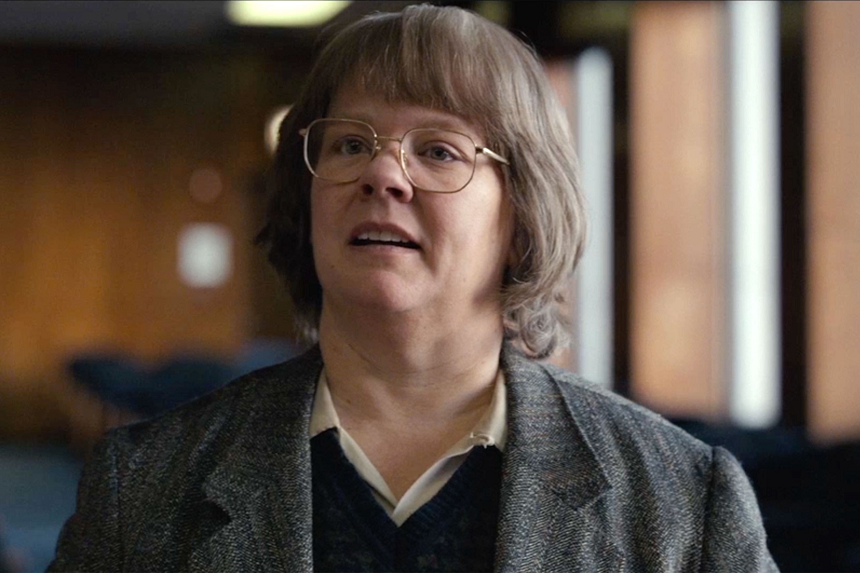“I have a hangover that is a real museum piece; I’m sure then that I must have said something terrible. To save me this kind of exertion in the future, I am thinking of having little letters runoff saying, ‘Can you ever forgive me?
Dorothy.’”
From her pithy poems and short stories to her legendary letters, Dorothy Parker’s snappy and acerbic writing was thought to be unmistakable. But Dorothy Parker didn’t write the excerpt above; Lee Israel did.
The biographer-turned-forger stole or fabricated hundreds of literary letters in the 1990s, and her 2008 memoir, Can You Ever Forgive Me?, has been adapted into a film — starring Melissa McCarthy as Israel — to be released on October 19th.
Before Israel became a criminal of correspondence, she was a freelance culture writer and Times best-selling author. Her biographies of Tallulah Bankhead (Miss Tallulah Bankhead) and Dorothy Kilgallen (Kilgallen) earned her moderate success as an author that was obliterated in a publishing war with Estée Lauder.
Estée Lauder: Beyond the Magic — a gossipy tell-all of the makeup magnate — released concurrently with the businesswoman’s own biography in 1985 and promptly tanked, dragging Israel’s reputation down with it. Years later, she regretted refusing an offer from Lauder to kill the book. As she told it in her memoir, “Instead of taking a great deal of money from a woman rich as Oprah, I published a bad, unimportant book, rushed out in months to beat the other little piggy to market.”
Israel spent years in poverty and on welfare with writer’s block and likely alcoholism. Described as a difficult person, she found it impossible to be employed in wage work, and held resentment for her fall from grace: “Writers, unlike lawyers, doctors, agents, and Verizon Information, do not get paid when they fail or misjudge,” she wrote.
Her crime spree began in the early ’90s, when she lifted some original Fanny Brice letters from the library and sold them for 40 dollars each. One letter, she noticed, bared some white space before the signature where she could insert some juicy lines of her own to up the price.
It was after Israel realized her new medium — forgery — that she created, as she said, her best work. She composed imaginary correspondence from Noël Coward that she claimed was “better Coward than Coward,” and whipped up phony letters from Lillian Hellman, Edna Ferber, and Louise Brooks, among others. One letter authored by Israel, and featured in The Letters of Noël Coward, delivered a course comment on Julie Andrews: “She is a bright, talented actress, and quite attractive since she dealt with her monstrous English overbite.” Israel bragged that her work passed for that of the cosmopolitan creative elite, but it was typed out in “a room with a view not of Alpine splendor, but of brick and pigeons.”
To ensure utmost authenticity in her ruse, Israel scoured secondhand stores for period typewriters — kept in a storage locker on the Upper West Side near her apartment — and she tore vintage paper from old journals in libraries. Her previous writing work had equipped her with the research skills necessary to analyze and imitate the stylistic quirks of larger-than-life entertainers and legends from the Algonquin Round Table. She found autograph dealers around the country who would pay 50 to 100 dollars for each letter, a modest price, and made up stories about how she had come to own them. Many of the dealers, however, were remarkably indifferent about the origins of the works, she claimed.
The truly “evil” part of her new vocation, she admitted, happened slowly. Some suspicions arose when Israel began to write overt homosexual references into her Coward letters (a farfetched conceit, given the harsh offenses for homosexuality in his time), so she stopped drafting new letters and took to stealing the originals from the library. She brought them home, made counterfeit versions, and switched the two. This new method led to her undoing when a dealer came in contact with her library of choice over a Hemingway missive.
Israel never saw jail time, but she did get six months of house arrest and five years of probation for her crimes. In the end, she scantly regretted her years spent in “such good company” as the deceased subjects of her forgeries. Her memoir was named after the ambiguous sign-off she attributed to Dorothy Parker, explaining in an interview, “I want to be forgiven, yet I’m not going to give a full-throated apology.” Israel attributed her actions to desperation and maintained that only someone as well-read and as charming as she could have convincingly brought to life some of the most iconic voices of the 20th century.
Become a Saturday Evening Post member and enjoy unlimited access. Subscribe now



